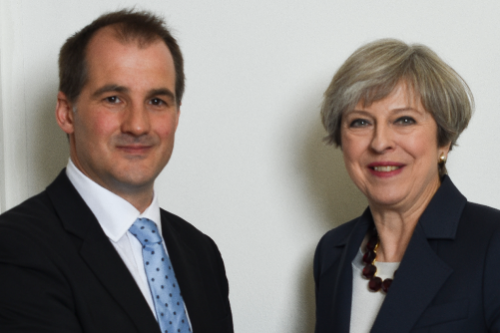Minister handed reins for Northern Powerhouse

Those who fear the Northern Powerhouse is running out of steam were given an unexpected boost by departing Prime Minister Theresa May in the final days of her reign.
In one of her last moves in Number 10, May announced extra responsibility and powers for the Northern Powerhouse minister Jake Berry.
And the departing PM stressed that the move underlined the Government’s commitment to the Powerhouse initiative.
There have been question marks over that commitment in recent months, with the nation’s politicians fixated on the Brexit impasse and little else on the Westminster agenda.
Mr Berry’s role, which had been based in the Ministry of Housing, Communities and Local Government, has now become a joint appointment with the Department for Business, Energy and Industrial Strategy.
In a statement the government said the move would improve oversight and coordination of local economic growth policy.
And it would ensure “key policies like the £1.6bn Stronger Towns Fund and the Northern Powerhouse are at the heart of delivering the government’s Modern Industrial Strategy.”
It added: “The appointment comes ahead of a refreshed Northern Powerhouse Strategy, due to be published later this year, bringing together the government, northern businesses and local leaders with a renewed focus on growth.”
A delighted Jake Berry said the departing PM had given “unwavering support” to the Northern Powerhouse.
The Rossendale and Darwen MP added: “At the heart of the Northern Powerhouse is an unshakeable partnership between business, communities and government.
“We’re investing more into transport in the North than any other government in history.
“And with nearly 50 per cent of the North represented by Metro Mayors, a Northern Powerhouse economy worth over £339bn, and now, with an expanded, cross-governmental ministerial position, that partnership is stronger than ever.”

Manchester city centre
Communities Secretary James Brokenshire was also bullish. He said: “With this broadened ministerial role, the government has cemented its long-term commitment to the Northern Powerhouse.
“The government has an empowered minister ready to roll up their sleeves and deliver for the Northern Powerhouse and local communities across the country.”
Brokenshire’s view is in stark contrast to that of former Chancellor George Osborne, one of the key architects of the Northern Powerhouse, who earlier this year accused the government of failing to deliver.
He declared: “The Northern Powerhouse is suffering from a lack of vision from the government. Indeed, it’s hard to think of a single original idea that has come out of this Downing Street to advance the Northern Powerhouse.”
The former Tatton MP turned newspaper editor called for action to breathe life back into the government’s claim that it supports the North.
He was speaking as the Northern Powerhouse Partnership (NPP) set out its “big ideas” to rebalance the economy and challenged Downing Street to adopt them.
They included direct government intervention in hundreds of Northern schools” to prevent another generation of young people falling behind”.
The NPP also called for a firm financial commitment to big infrastructure projects, especially high-speed rail from Liverpool to Hull.
It also demanded “complete devolution” with mayors covering all major urban areas of the North.

Henri Murison
Henri Murison, director of the NPP, believes real progress has been made, though the government “hasn’t delivered as much as we might have hoped”.
He added: “What is reassuring has been the level of commitment from senior business people and more and more from SMEs. They are really committed to making it a success.”
Murison says there is going to have to be a “reboot” of the government after the Brexit process is over. And he adds: “Putting the North where it needs to be is huge opportunity for the government, if they choose to do that.”
In the meantime the work of the NPP continues – with the focus on improving connectivity, improving education, increasing R&D investment and greater devolution.









